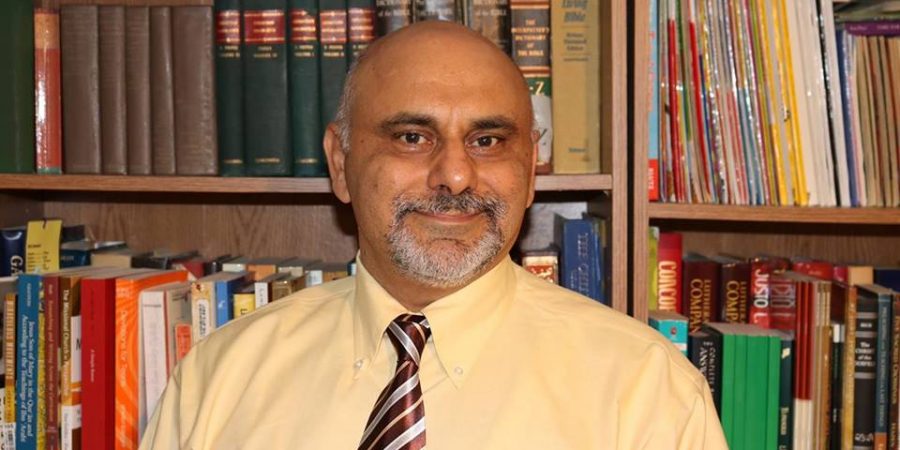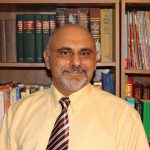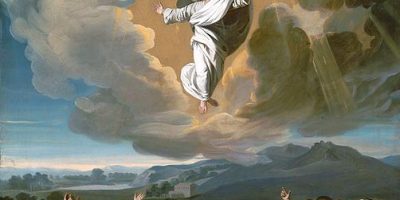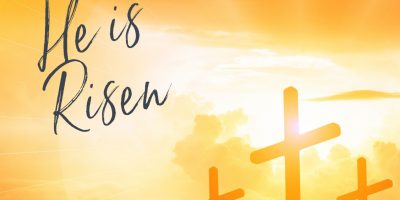First Sunday in Advent
Hesham Shehab: 1st Sunday of Advent… God’s “Dream” Comes True

Sermon text preached by Rev. Hesham Shehab
Sunday, November 27, 2022
St. Paul Evangelical Lutheran Church, Whiting, IN
Text: Isaiah 2:1-5
Yes, today marks the first Sunday of a new church year and the first Sunday in Advent. Today, we begin a time of waiting. Waiting is something all of us experience. In many ways, one could say our whole life is spent waiting. We wait for all kinds of things. Information puts us on hold as we wait on the phone while our ears are pumped with thin, irritating music. Our order hasn’t come yet and we are hungry. Certain circumstances cause us to ask questions like: Will the rain or snow ever stop? Our kids ask, “How long is it until we get there?” or “How many days until Christmas?” Life is simply a series of hopes, waiting, and only partial fulfillments. Quite honestly, the human condition does seem to be a state of waiting. A state of living with constantly unsatisfied desire as we wait for something that is truly fulfilling.
Seventy-four years ago, Samuel Beckett, a French playwright, wrote Waiting for Godot, “a tragicomedy in two acts.” In 1999, it was voted the “most significant English-language play of the 20th century”. I read that play 38 years ago, and I could say in simple terms, that it mocks God and the Biblical salvation history, and asserts the futility of the human existence. Soren Kierkegaard, puts it in another way: Søren Kierkegaard, who I was told was Lutheran, expresses this futility in another way: He says: “…while inherent meaning might very well exist in the universe, human beings are incapable of finding it due to some form of mental or philosophical limitation. Thus, humanity is doomed to be faced with the Absurd, or the absolute absurdity of the existence in lack of intrinsic purpose.”
Advent invites us to understand with a new patience that condition, that very difficult state of being. Advent means coming, and so we wait for God’s coming. We wait as we prepare celebrate God’s greatest event. And, as we begin this time of waiting, the first words given to us are from the prophet Isaiah.
Isaiah’s world was a chaotic, unjust, broken, hurting, warring world. Israel was a storm-tossed nation that was threatened by the powerful Assyrians to the north and east and threatened by the Egyptians to the south and west. The king and his advisors were occupied with what they needed to do to protect themselves. Events were out of control and fear was running rampant. The people were waiting for God to reveal a word concerning their situation. And, into that turmoil and storm-tossed world a voice stood out, the voice of Isaiah. Through the prophet Isaiah, God did speak and does speak. The prophet Isaiah speaks of seeing a reality that is deeper than the reality the people were living. He proclaims God’s vision for the world, holding up a vision of God’s future, the One to whom the future belongs. He proclaims:
“Look! Focus your eyes upon the mountain of the house of the Lord…For it shall rise up and be established as the highest of the mountains…And people of all races will come and say: ‘Come, let’s climb God’s Mountain, go to the House of the God of Jacob. He’ll show us the way he works so we can live the way we’re made.’ God’s message comes from Jerusalem. God will settle things fairly between nations. God will make things right between many peoples so that they will turn their swords into shovels, their spears into hoes. No more will nation fight nations; they won’t play war anymore. Come, let’s live in the light of God.” (The Message)
When I visited the United Nations building in New York in 2001, I saw Isaiah 2: 1-5 carved at the entrance of the building. How absurd… or irrelevant is that great prophecy when it is carved at the UN building. The UN, that proved to be one of the most corrupt and aimless organizations in the world.
When I read the Isaiah passage in New York, I could see that Man’s dream of unity and peace on this earth is an illusion, or a mirage… because without Christ the words of Isaiah are empty. With or without the UN, we live in a chaotic world, like Isaiah did 2800 years ago.
Into that chaotic, warring world, Isaiah speaks a word of hope and a word of peace. Centered on God’s dream for the world, Isaiah’s vision involves more than a geographical location: it is a place of light and truth, of justice and judgment, where God’s supreme power and authority are honored and enacted. It is a vision place… a place of no more war. A Biblical scholar, Walter Brueggeman, has compared these words from Isaiah to the “I have a dream” speech from Dr. Martin Luther King, Jr. Like Dr. King, Isaiah provided words of hope and peace as the people waited for that future God promised, a future that was very different from what was visible to them at the present moment.
We are living in a chaotic, unjust, broken, hurting, warring world. World leaders and their advisors are occupied with the Russian-Ukraine war, the war in Syria, the chaos in Iraq, Iran, Libya, and African deserts…etc. Events sometimes seem out of control and fear is running rampant in many places within our culture. And, into this turmoil and storm-tossed world a voice stands out again, the voice of Isaiah. On this first Sunday of Advent as we begin a new church year and this time of waiting, Isaiah speaks and promises us a time when God’s ways will fully shape how all of us live. Every single person – “all nations…all peoples” will be streaming toward the bright light of peace, and there is enough, for all And, as we wait for that time of God’s fulfillment, God invites us not just to imagine and dream but to make God’s dream a priority in our everyday lives, living into that dream. As people of faith, we live holding up a vision of God’s future for this world. We have been instructed in the Lord’s ways; now is the time to walk in them and take the Word of the Lord forth into the world – caring for the poor, working for peace, unity and enduring justice for all people, especially those most in need of restitution and hope. That is the work of the Church.
Yes, there will come a day. You can count on it. That’s what the church says. And, if Isaiah and Dr. King could dream of peace and lift up that vision for us, we too can dream the dream of peace and re-arrange our individual lives and the life of our communities, large and small, to be peace-making communities of generosity, justice and joy. We can work to develop communities where people listen to each other, communities of self-examination, of acceptance, of welcome and hospitality, of change – even if that change is not easy or fast. Now, I know we can’t do this on our own, but God does make it possible and God’s grace enables us to accomplish so much more than we can even imagine.
Without Jesus Christ, we would be waiting for Godot. Actually, without Christ, all of existence would be futile and meaningless.
When I first heard the life-changing words of the Sermon on the Mount 42 years ago, Jesus’ words set me on a path of self- examination and an existential quest that made me doubt everything in this chaotic life. It lasted seven years and made me a man angry at God as I lost faith in religion. I tried to live like an atheist, but could not. I had asked God to end my life, because I thought it was the best way out of this trap, that is life. But I often, had a prayer: O God please end my misery, but if you have a better plan, a better vision for my life, You know better, and You will do better than me. You have a better vision. And Jesus found me when I was lost.
Advent is about dreams and visions, the dream of God for this world, and how God’s dream comes true in flesh and blood, in a child born to us, Jesus, and in and through the Church, Christ’s body presented to this broken, warring world. As we continue to wait for God’s coming in fullness, the promise of Advent is that what is coming is an unimaginable invasion, an invasion of holiness, an invasion of God in this world. And, as we wait, we do so by living God’s dream for this world in this present moment. Sharing the Gospel with the lost, and loving our neighbor as ourselves.
Heavenly Father, we know that your children are a minority in this world, but they are the yeast that this world need to fulfil your purpose for humanity. Bless our families this Advent season, and bless St. Paul as we reach our neighbors with your gifts. In Jesus precious name we pray. Amen
Hesham Shehab
Read more from Hesham Shehab… https://xpian.news/?s=hesham&submit=Search…

Hesham Shehab
Adjunct Faculty at College of DuPage, Formerly Adjunct Faculty at American University of Beirut and Pastor at Peace Lutheran Church Lombard, IL Name pronounciation: HI-shahm SHI-hab Hebrews 12: 4 & Philippians 1: 29




Comments are Closed